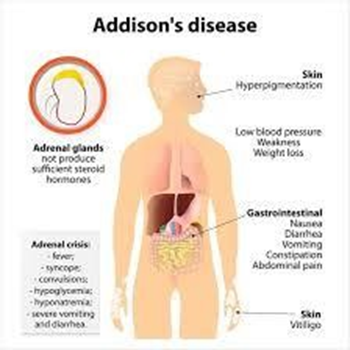A nurse is caring for a client who has impaired renal function. For which of the following findings should the nurse notify the provider?
Urine output of 175 ml in the past 8 hrs
Urine output of 2,200 ml in the past 24 hr
Urine is cloudy after sitting in the urinal for 6 hr
First-voided urine in the morning has a strong odor
The Correct Answer is A
A. A urine output of 175 ml over 8 hours indicates oliguria, which can be concerning in a client with impaired renal function. It suggests decreased kidney function and inadequate elimination of waste products and fluids, necessitating prompt notification of the healthcare provider.
B. This amount of urine output over 24 hours is within normal range and does not typically warrant immediate notification unless there are other concerning symptoms.
C. Cloudy urine may indicate the presence of urinary tract infection or other issues, but it alone may not require immediate notification of the provider.
D. While strong-smelling urine can be indicative of various conditions, it alone may not necessitate immediate provider notification unless accompanied by other concerning symptoms.
Nursing Test Bank
Naxlex Comprehensive Predictor Exams
Related Questions
Correct Answer is A
Explanation
A. Sudden weight gain is a common sign of fluid overload in clients with end-stage kidney disease undergoing hemodialysis.
B. Skin turgor assessment is not as reliable in individuals with kidney disease due to changes in skin elasticity.
C. Flattened neck veins are not indicative of fluid overload; rather, they suggest dehydration.
D. Oxygen saturation may be affected by various factors but is not directly related to fluid overload in this context.
Correct Answer is B
Explanation
A. Intention tremors are not typically associated with Addison's disease.
B. Hyperpigmentation, particularly in sun-exposed areas and pressure points, is a characteristic finding in Addison's disease due to increased melanocyte-stimulating hormone (MSH) production.
C. Purple striations are typically associated with Cushing's syndrome, not Addison's disease.
D. Hirsutism (excessive hair growth) is not a common manifestation of Addison's disease. It is more associated with Cushing’s disease.

Whether you are a student looking to ace your exams or a practicing nurse seeking to enhance your expertise , our nursing education contents will empower you with the confidence and competence to make a difference in the lives of patients and become a respected leader in the healthcare field.
Visit Naxlex, invest in your future and unlock endless possibilities with our unparalleled nursing education contents today
Report Wrong Answer on the Current Question
Do you disagree with the answer? If yes, what is your expected answer? Explain.
Kindly be descriptive with the issue you are facing.
